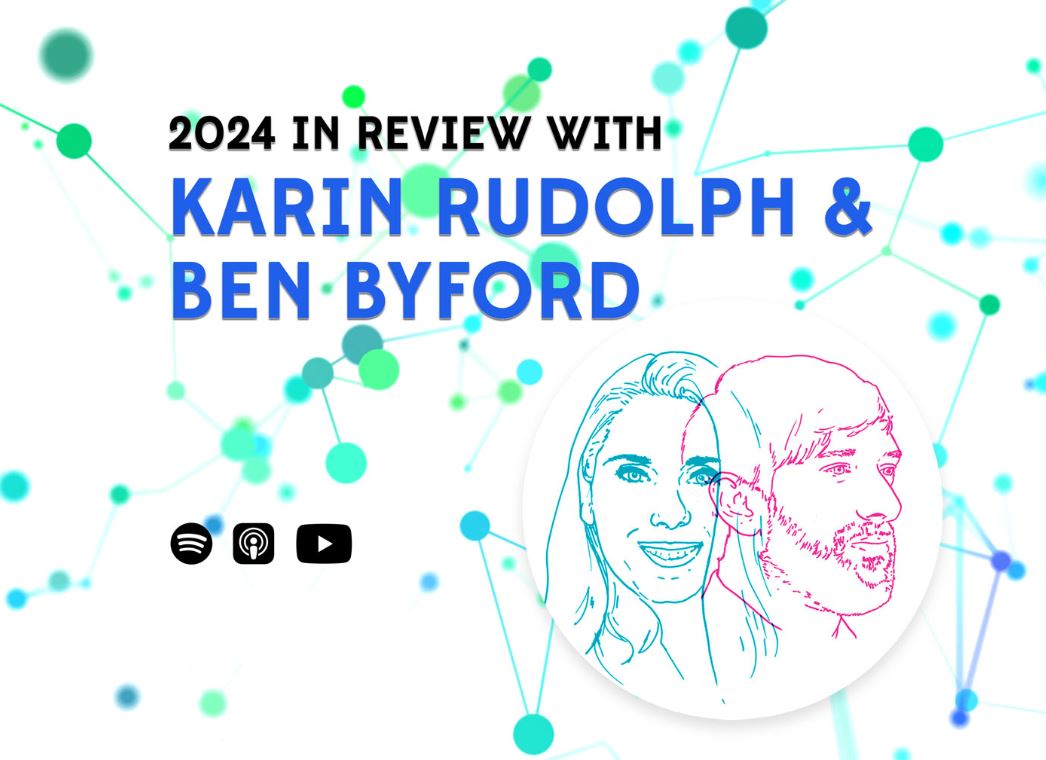
ΑΙhub.org
The Machine Ethics podcast: 2024 in review with Karin Rudolph and Ben Byford

Hosted by Ben Byford, The Machine Ethics Podcast brings together interviews with academics, authors, business leaders, designers and engineers on the subject of autonomous algorithms, artificial intelligence, machine learning, and technology’s impact on society.
2024 in review with Karin Rudolph and Ben Byford
For our 2024 round up episode we’re chatting with Karin Rudolph about the AI Ethics Risk and Safety Conference, the EU AI Act, agent-based AI and advertising, AI search and access to information, conflicting goals of many AI agents, weaponising disinformation, freedom of speech, the LLM plateau, shadow AI, and more…
Listen to the episode here:
Karin Rudolph is the founder of Collective Intelligence, a Bristol-based consultancy specialising in AI ethics and governance. Collective Intelligence provides training and resources to help organisations implement ethical AI practices and robust governance.
Karin also organises the AI Ethics, Risks, and Safety Conference, an annual event, next taking place in Bristol in May 2025.
Karin is a regular speaker at universities and conferences and an active member of the tech community in the South West of England.
About The Machine Ethics podcast
This podcast was created and is run by Ben Byford and collaborators. The podcast, and other content was first created to extend Ben’s growing interest in both the AI domain and in the associated ethics. Over the last few years the podcast has grown into a place of discussion and dissemination of important ideas, not only in AI but in tech ethics generally. As the interviews unfold on they often veer into current affairs, the future of work, environmental issues, and more. Though the core is still AI and AI Ethics, we release content that is broader and therefore hopefully more useful to the general public and practitioners.
The hope for the podcast is for it to promote debate concerning technology and society, and to foster the production of technology (and in particular, decision making algorithms) that promote human ideals.
Join in the conversation by getting in touch via email here or following us on Twitter and Instagram.









